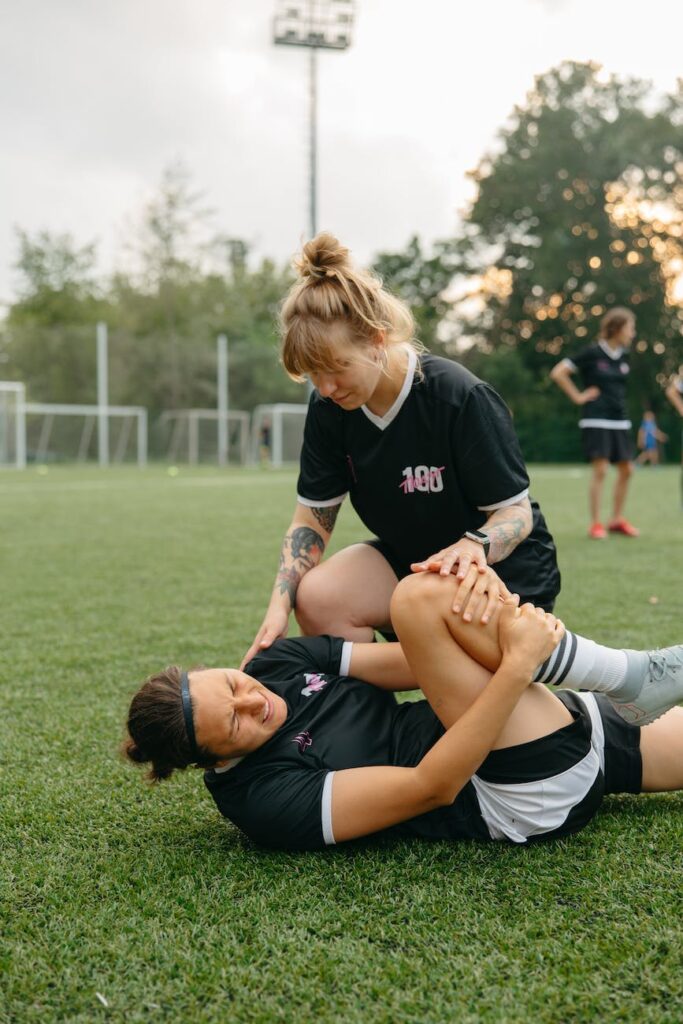Contents
Understanding Personal Injury Claims
Understanding the basics of personal injury claims is essential if you or a loved one has suffered a personal injury. This understanding will assist you in navigating the process and ensuring you receive the compensation you deserve.
Basics of Personal Injury Claims
Personal injury claims fall under tort law, which establishes liability for negligent or intentional misconduct causing injuries, deaths, or other damages (HG.org). In these cases, the injured party (plaintiff) seeks compensation from the individual or entity responsible for their injuries (defendant).
The first step in pursuing a personal injury claim is to establish liability. This involves proving that the defendant’s actions or inaction directly caused the injury. The plaintiff must show that the defendant had a duty of care to prevent harm, failed to meet this duty, and that this failure resulted in the plaintiff’s injury.
In Illinois, there is a statute of limitations for personal injury claims, generally two years from the date of the injury. This means that individuals have two years from the date of the injury to file a lawsuit. However, there are some exceptions to this time limit depending on the circumstances of the case.
Common Types of Personal Injury Cases
In Illinois, personal injury claims can arise from various situations, including car accidents, slips and falls, medical malpractice, defective products, and workplace accidents. Each type of case may have specific legal considerations that need to be addressed in the claim process.
Below are some of the most common types of personal injury cases:
- Car Accidents: These claims arise when a driver’s negligence results in a collision, causing injury to another driver, passenger, or pedestrian.
- Slip and Falls: These involve claims against property owners or occupiers who fail to maintain safe premises, resulting in injury to a visitor or tenant.
- Medical Malpractice: These claims occur when a healthcare provider, through negligence, causes injury or death to a patient.
- Defective Products: In these cases, manufacturers, distributors, or retailers may be held liable if a defective product causes injury.
- Workplace Accidents: These involve claims for injuries sustained in the workplace. Workers’ compensation laws can further complicate these.
For a deeper understanding of these and other types of personal injury cases, refer to our detailed guide on types of personal injury cases.
Understanding the basics of personal injury claims and the common types of personal injury cases is the first step toward navigating the process of seeking compensation for injuries. As each case is unique, consulting with a legal professional specializing in personal injury claims is recommended to ensure your rights and interests are fully represented.
Legal Aspects of Personal Injury Claims
Navigating the legal landscape of personal injury claims requires a thorough understanding of state-specific laws and regulations. This section will discuss two key aspects of personal injury law in Illinois: the statute of limitations and the modified comparative negligence rule.
Statute of Limitations in Illinois
The statute of limitations is a law that sets the maximum time after an event within which legal proceedings may be initiated. In Illinois, the statute of limitations for personal injury claims is generally two years from the date of the injury. If you wish to file a lawsuit for your injury, you must do so within two years of the date when the injury occurred.
However, it’s important to note that there are exceptions to this rule. Certain types of injuries, such as those related to slander, libel, or product liability, may have different deadlines. Therefore, it’s essential to understand the specific statute of limitations that applies to your unique personal injury claim.
Modified Comparative Negligence Rule
Illinois operates under a “modified comparative negligence” system. This means that if you are partially at fault for your injury, the damages you receive may be reduced proportionally to your degree of fault.
For instance, if you are found to be 20% at fault for the accident, your compensation will be reduced by 20%. However, if you are found to be 50% or more at fault, you will not be eligible to recover any damages.
This rule emphasizes the importance of gathering comprehensive evidence to support your claim. Proving that the majority of fault lies with the other party can significantly impact the compensation you receive.
Understanding the legal aspects of personal injury claims in Illinois is a crucial part of the claim process. Knowledge of the statute of limitations and the modified comparative negligence rule can help you navigate your claim effectively and increase your chances of securing fair compensation. For more detailed insights into personal injury laws and the claim process, consider seeking legal representation or consulting with a personal injury lawyer.
Filing a Personal Injury Claim
The process of filing a personal injury claim in Illinois can be complex and challenging, especially if you’re dealing with the aftermath of an accident or injury. This stage involves key factors such as evidence gathering and legal representation, both of which play crucial roles in the success of your claim.
Importance of Evidence Gathering
The gathering of evidence is a vital step when filing a personal injury claim. This evidence serves as the foundation of your claim, as it can substantiate your allegations and help establish the liability of the other party involved.
The evidence you collect may include photographs of the accident scene, medical records detailing your injuries, witness testimonies, and any reports or documentation relating to the incident. It’s important to gather this information immediately after the incident to ensure its accuracy and reliability.
Furthermore, evidence can be crucial if your case proceeds to trial. Presenting evidence in court requires adherence to complex legal requirements, necessitating an attorney experienced in trial procedures (Schiro & Themer).
For more insights into the process of evidence gathering, you can refer to our detailed guide on personal injury claims investigation and preparation from inception to trial.
Role of Legal Representation
Navigating personal injury claims in Illinois can be daunting, especially given the state’s specific laws and regulations related to such cases. This is where the role of legal representation becomes invaluable.
Hiring an experienced personal injury attorney is highly beneficial for navigating the legal complexities of personal injury claims, ensuring that your rights are protected, and maximizing the compensation you may receive for your injuries and damages (Malman Law).
Additionally, your attorney can help you understand and protect your rights under the state’s statute of limitations for personal injury claims (Levin & Perconti).
Experienced legal representation becomes even more critical if your case proceeds to trial, as a judge or jury will determine fault and award compensation.
Given these considerations, selecting the right legal representation is a significant decision. For guidance, refer to our article on choosing the right personal injury lawyer.
While filing a personal injury claim may seem overwhelming, remember you don’t have to navigate this process alone. With the proper evidence and experienced legal representation, you can take the necessary steps towards seeking justice and compensation for your injuries.
Compensation in Personal Injury Claims
In the context of personal injury claims, compensation is a critical aspect that helps restore the victims to the position they would have been in, had the accident not occurred. This compensation helps cover various losses and damages a person may incur due to an accident.
Economic and Non-Economic Damages
In Illinois, personal injury claims can include compensation for economic and non-economic damages. Economic damages refer to tangible losses such as medical bills, property damage, and lost wages. Conversely, non-economic damages include more subjective losses such as pain and suffering, emotional distress, and loss of consortium.
It’s important to note that while there is no cap for most personal injury cases in Illinois, there is a cap on non-economic damages in medical malpractice cases, currently set at $2.25 million.
Calculating Pain and Suffering Damages
Calculating non-economic damages, especially pain and suffering damages, can be complex due to their subjective nature. In Illinois, these damages are often calculated using a multiplier method, where the economic damages are multiplied by a certain number based on the severity of the injuries (Kryder Law).
| Factors | Description |
|---|---|
| Severity of Injuries | More severe injuries usually result in a higher multiplier |
| Necessary Medical Treatment | If the injury significantly disrupts the victim’s life, the multiplier may be higher. |
| Duration of Recovery | A longer recovery period can result in a higher multiplier |
| Impact on Daily Activities | Permanent or long-lasting effects of the injuries can increase the multiplier. |
| Long-term Consequences | Permanent or long-lasting effects of the injuries can increase the multiplier |
As Illinois does not have a statutory cap on non-economic damages in personal injury cases, the compensation for pain and suffering can vary significantly based on the specifics of each case.
Understanding these aspects of compensation is key to navigating personal injury claims in Illinois. To ensure you receive a fair settlement, it’s crucial to gather comprehensive evidence, understand the value of your claim, and seek professional legal representation. For more information on this topic, check out our articles on how to win a personal injury case and choosing the right personal injury lawyer.
Pursuing personal injury claims in Illinois can be complex and often involves several stages. Two key phases are the investigation phase and starting your claim, the discovery phase and potentially going to trial. Each step requires careful navigation and can be significantly aided by the expertise of an experienced personal injury attorney.
Investigation Phase and Starting Your Claim
The initial stage of a personal injury claim typically involves an investigation phase. This includes gathering relevant information, seeking appropriate medical treatment, and ensuring necessary care. Skilled attorneys can provide valuable guidance during this time, advising on medical issues and helping gather necessary evidence for your claim.
Once medical treatment is complete or a stable condition with permanent impairment is reached, discussions on future medical care and negotiations for settlement can begin. In many instances, claims can be settled at this stage without requiring a lawsuit. For a deeper understanding of this process, consider reading our article on personal injury claims.
Discovery Phase and Going to Trial
Should negotiations fail to reach a fair settlement, the next phase in the personal injury lawsuit process is discovery. During discovery, both parties can obtain information through written questions, document requests, and sworn statements in depositions. This phase often leads to settlements before reaching trial.
However, the case may proceed to trial if a fair agreement cannot be reached. Here, a judge or jury determines fault and awards compensation to the injured party. Presenting evidence in court requires adherence to complex legal requirements, thus necessitating an attorney experienced in trial procedures. For more insights into settling versus going to trial, visit our article on settling vs. going to trial.
Navigating personal injury claims in Illinois can be a complex process. It is important to consult with knowledgeable personal injury attorneys who can guide individuals through each step and work toward a favorable outcome (Schiro & Themer). For more resources on personal injury claims, consider exploring our articles on personal injury compensation and damages and how to win a personal injury case.
Special Considerations for Personal Injury Claims
While the basics of personal injury claims are generally similar across different types of cases, there are unique considerations to be aware of in specific contexts. This includes claims against government entities and worker’s compensation claims.
Claims against Government Entities
Different rules and timelines may apply when making a personal injury claim against a municipality or other governmental entity in Illinois. Typically, these claims require filing a notice of claim within one year of the injury. This is a shorter timeframe than for claims against private individuals or entities, and claimants must be aware of this when pursuing their case.
Claims against government entities can be particularly nuanced, involving specific laws and regulations that may not apply to other types of personal injury cases. Therefore, it is advisable to seek experienced legal representation to navigate this complex area of law (Levin & Perconti).
Workers’ Compensation Vs. Personal Injury Claims
In contrast to personal injury claims, workers’ compensation claims in Illinois do not require proof of negligence. The workers’ compensation system is designed to cover lost wages, medical expenses, and future financial hindrances due to work-related injuries, irrespective of fault. This means that as long as the injury occurred during employment, the injured party is eligible for workers’ compensation benefits (Pullano & Siporin Law).
However, while workers’ compensation offers certain protections for injured workers, it may not cover all the damages that can be recuperated in a personal injury claim. For example, workers’ compensation does not typically include damages for pain and suffering. Therefore, in some cases, it may be advantageous for an injured worker to pursue a personal injury claim in addition to or instead of a workers’ compensation claim.
In the realm of personal injury claims in Illinois, these special considerations underscore the importance of understanding the specific circumstances of your injury and the applicable laws. Whether you’re dealing with a claim against a government entity or weighing the benefits of a workers’ compensation claim versus a personal injury claim, informed decision-making is crucial. For more detailed guidance on navigating the landscape of personal injury claims, consider choosing the right personal injury lawyer to represent your interests.







